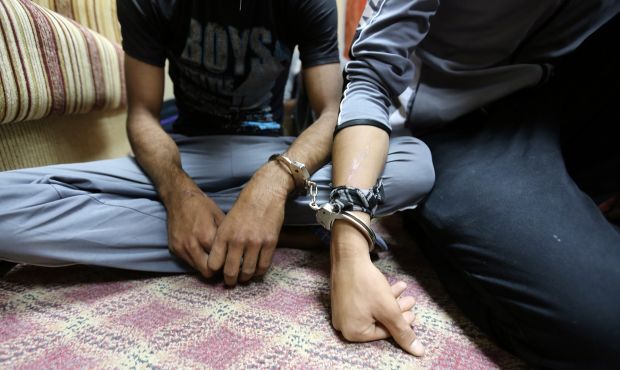The Saudi Interior Ministry has done well to grant Saudi journalist Dawood Al-Shirian the opportunity, via MBC TV, to meet with Al-Qaeda prisoners in Saudi prisons.
MBC conducted interviews with three prisoners, the most important of which was an interview with Walid Al-Sinani.
Sinani, who is also known as Abu Subay’i, has spent 18 years in prison. He is a figure who will only be familiar to those who paid close attention to the field of Islamic preaching 20 years ago. Everyone who knew Walid, including myself, will never forget him. He was a person who was nice to be around, friendly, full of stories from local folklore and popular poetry. He also had some habits which distinguished him from others, such as personally brewing coffee for his guests, even roasting the coffee beans himself, all the while talking and telling interesting stories.
That is the exciting part of Walid’s character. The part that is disturbing is his ferocious attack on the Saudi state based on Takfirist ideology. He described the state as being tyrannical, not due to any specific injustice or as the result of economic or political demands, as some smart alecks claim. Rather, he raised this Takfirist ideology based on a simple and direct reason: Because the state was not being ruled based on divine law, or at least according to his understanding of God’s law. This is something that led to a belief in the illegitimacy of the military, and Walid at the time became known for his campaign to outlaw the “military salute,” viewing this as being a tyrannical salute.
When I saw Walid on television, he seemed the same to me, professing the same ideas, although he has now added calls for jihad and migration from Saudi Arabia because it has become a Dar Kafr (House of Apostasy), or at least according to his own views. Therefore the claims that Walid’s long prison sentence has affected him are incorrect, for he was like this 20 years ago.
The man expresses revolutionary ideas under the pretext of religion. These are precisely the same ideas that he expressed before. He is proud of these ideas and ideologies, and is prepared to fight for them. The ideas form the basis of Al-Qaeda’s discourse, and which provide a pretext for murder, assassination, and terrorism. Walid himself defended the Riyadh Compound Bombings, of 2003, on the pretext of a historic fatwa.
In an attempt to avoid pandering to the street and to the freedom of opinion brigade, which seems to appeal to people who accuse others of being infidels for the slightest thing, the truth of the matter is that these ideas are very dangerous and incite murder and terrorism. This cannot be true freedom of opinion or expression!
Should we allow somebody to advocate for the murder of children, for example, on the basis that they themselves are not physically killing children?
It is important that we speak openly, because failing to do so allows others to play political games, and misuse human rights causes for their own ends.
